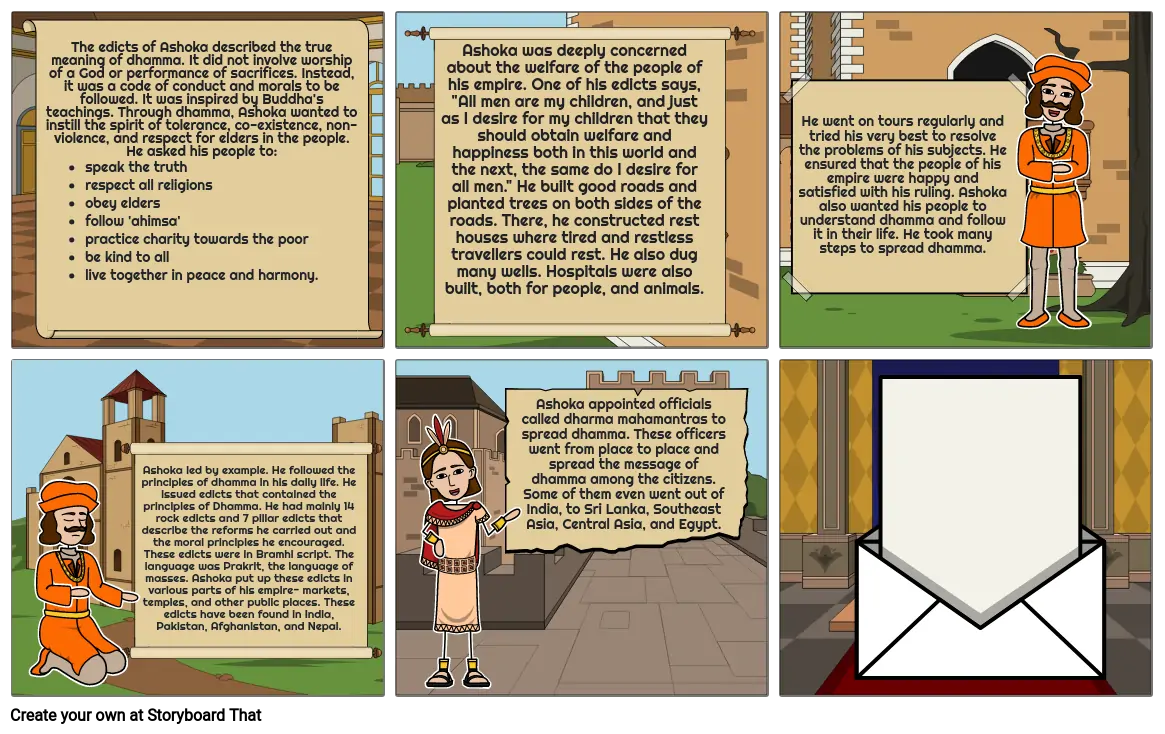Emperor Ashoka

Storyboard Tekst
- The edicts of Ashoka described the true meaning of dhamma. It did not involve worship of a God or performance of sacrifices. Instead, it was a code of conduct and morals to be followed. It was inspired by Buddha's teachings. Through dhamma, Ashoka wanted to instill the spirit of tolerance, co-existence, non-violence, and respect for elders in the people. He asked his people to:speak the truthrespect all religionsobey eldersfollow 'ahimsa'practice charity towards the poorbe kind to alllive together in peace and harmony.
- Ashoka was deeply concerned about the welfare of the people of his empire. One of his edicts says, "All men are my children, and just as I desire for my children that they should obtain welfare and happiness both in this world and the next, the same do I desire for all men." He built good roads and planted trees on both sides of the roads. There, he constructed rest houses where tired and restless travellers could rest. He also dug many wells. Hospitals were also built, both for people, and animals.
- He went on tours regularly and tried his very best to resolve the problems of his subjects. He ensured that the people of his empire were happy and satisfied with his ruling. Ashoka also wanted his people to understand dhamma and follow it in their life. He took many steps to spread dhamma.
- Ashoka led by example. He followed the principles of dhamma in his daily life. He issued edicts that contained the principles of Dhamma. He had mainly 14 rock edicts and 7 pillar edicts that describe the reforms he carried out and the moral principles he encouraged. These edicts were in Bramhi script. The language was Prakrit, the language of masses. Ashoka put up these edicts in various parts of his empire- markets, temples, and other public places. These edicts have been found in India, Pakistan, Afghanistan, and Nepal.
- Ashoka appointed officials called dharma mahamantras to spread dhamma. These officers went from place to place and spread the message of dhamma among the citizens. Some of them even went out of India, to Sri Lanka, Southeast Asia, Central Asia, and Egypt.
- That's all for today.BYE!
Izrađeno više od 30 milijuna scenarija

